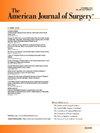What matters most? Understanding patient preferences in breast cancer treatment: A systematic review of discrete choice experiments
IF 2.7
3区 医学
Q1 SURGERY
引用次数: 0
Abstract
Background
Breast cancer treatment decisions often involve complex trade-offs between survival, quality of life, treatment burden, and financial costs. Understanding how patients weigh these factors is essential for patient-centered care.
Methods
We conducted a systematic review following PRISMA guidelines, searching Medline, EMBASE, and the Cochrane Library databases up to February 28, 2025 for discrete choice experiment (DCE) studies involving adult women with breast cancer. Using a predefined protocol, two reviewers independently screened and extracted data and findings were narratively synthesized. Methodological quality was assessed using the ROBVALU tool.
Results
Seventeen studies (n = 5873; 12 countries) were included. Treatment efficacy was the most important attribute in 88 % of studies. However, many patients, particularly younger women and those with early-stage disease, prioritized quality of life over modest survival gains. Notably, cost and logistical burden were influential in lower-income settings. Because many DCEs sampled advanced/metastatic populations, generalizability to low-risk early-stage disease is limited.
Conclusions
In summary, patients often trade survival gains to reduce toxicity and treatment burden, underscoring the importance of integrating preferences into care decisions.
什么最重要?了解患者在乳腺癌治疗中的偏好:离散选择实验的系统回顾
乳腺癌治疗决策通常涉及生存、生活质量、治疗负担和经济成本之间的复杂权衡。了解患者如何权衡这些因素对于以患者为中心的护理至关重要。方法:我们按照PRISMA指南,检索Medline、EMBASE和Cochrane Library数据库,检索截至2025年2月28日的涉及成年女性乳腺癌的离散选择实验(DCE)研究。使用预定义的方案,两名审稿人独立筛选和提取数据,并对结果进行叙述性综合。使用ROBVALU工具评估方法学质量。结果纳入17项研究(n = 5873; 12个国家)。在88%的研究中,治疗效果是最重要的属性。然而,许多患者,特别是年轻女性和早期疾病患者,优先考虑的是生活质量,而不是适度的生存收益。值得注意的是,成本和后勤负担对低收入环境产生了影响。由于许多dce样本是晚期/转移性人群,因此对低风险早期疾病的推广能力有限。综上所述,患者往往会为了减少毒性和治疗负担而牺牲生存期,这强调了将偏好纳入护理决策的重要性。
本文章由计算机程序翻译,如有差异,请以英文原文为准。
求助全文
约1分钟内获得全文
求助全文
来源期刊
CiteScore
5.00
自引率
6.70%
发文量
570
审稿时长
56 days
期刊介绍:
The American Journal of Surgery® is a peer-reviewed journal designed for the general surgeon who performs abdominal, cancer, vascular, head and neck, breast, colorectal, and other forms of surgery. AJS is the official journal of 7 major surgical societies* and publishes their official papers as well as independently submitted clinical studies, editorials, reviews, brief reports, correspondence and book reviews.

 求助内容:
求助内容: 应助结果提醒方式:
应助结果提醒方式:


